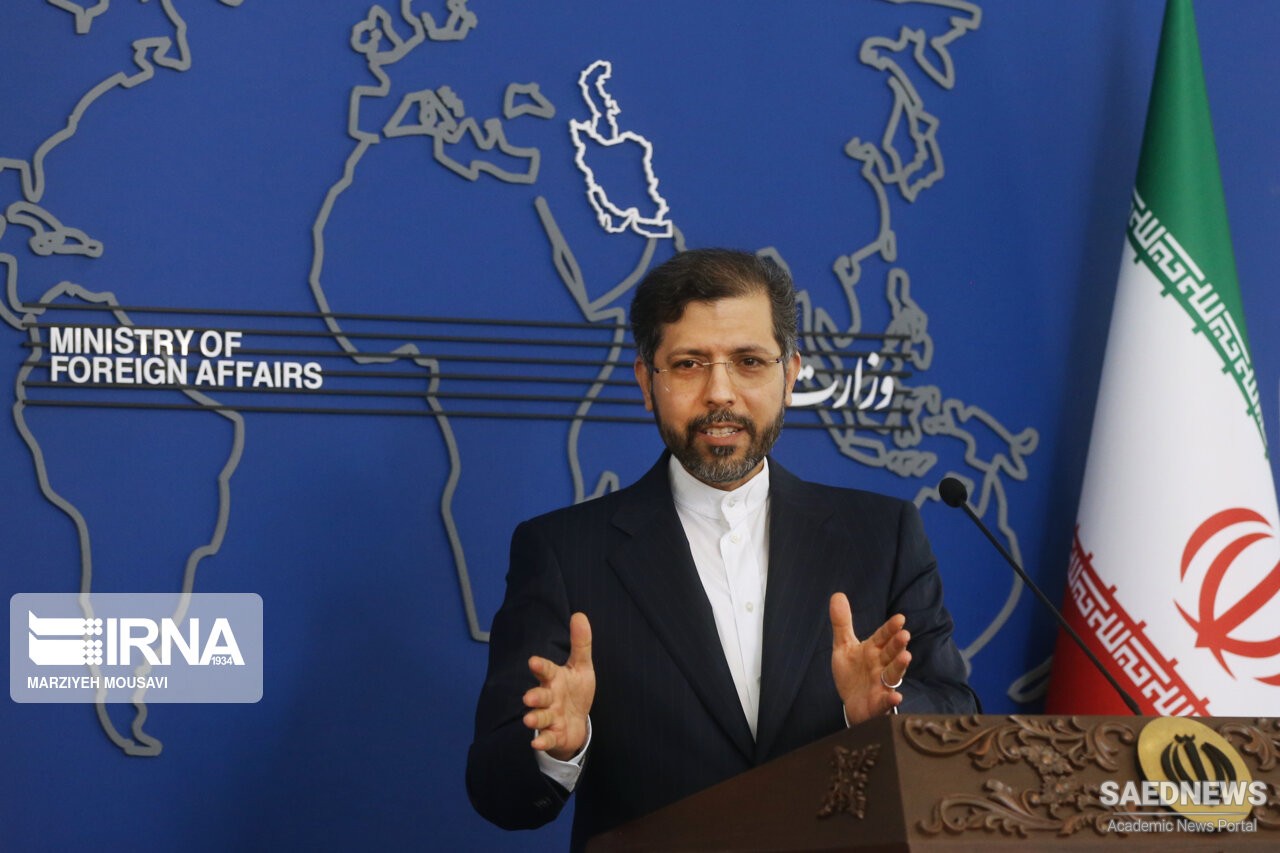Tehran, SAEDNEWS: In his weekly press conference, Saeed Khatibzadeh elaborated on the efforts to evacuate Iranian nationals stuck in Ukraine, saying that the Ministry of Foreign Affairs could not access tens of Iranians in Ukraine despite all the efforts made.
He said that the Ministry of Foreign Affairs and some entities within Ukraine made extensive attempts few days before and immediately after the war in Ukraine began and a considerable number of Iranian nationals were evacuated as a result.
Iranian nationals were moved from war zones to safer regions or out of Ukraine through the Belarusian border, the spokesman continued.
Khatibzadeh also said that several vans with Iran flag were stationed along the Ukraine-Poland border, waiting for Iranian nationals to transfer them back to Iran.
The spokesman also remarked on the situation with the talks in Vienna to remove sanctions against Iran, saying that Iran’s chief negotiator Ali Bagher Kani’s traveling back to Tehran was for consultations.
A draft deal has been prepared, Khatibzadeh said, which needed to be carefully reviewed by Tehran.
Some issues still remain and Bagheri has been given the required instructions on the talks with the other parties in the negotiations, Khatibzadeh noted.
He also said that the US and the Western participants have failed to make their political decision on three main issues.
The diplomat explained that the Islamic Republic of Iran has elaborated its red lines, logic, and reasons to the Western party and how they could solve them.
We are at a point now that we think Washington and Europe have no ambiguity about Iran’s red lines, Khatibzadeh underlined, adding that Iran expects them no to prolong decision making.
Khatibzadeh stressed that the Ukraine war has nothing to do diplomatically with the ongoing talks in Vienna, as different issues are followed up in their own framework in the world of diplomacy.
On the possibility of no deal in Vienna, the spokesman said that over 98 percent of the prepared draft has been jointly written and the remaining issues should be solved.
There have been also discussions on sanctions removal, assurances, and some claims on Iran’s peaceful nuclear activity which should be settled on a proper ground, he went on to say.
There would be no new deal in Vienna, Khatibzadeh emphasized, adding that the deal was reached in 2015 and the talks in the Austrian capital are aimed at assuring that the US’ return to the JCPOA would be accompanied by implementation of its commitments on removing sanctions against Iran.
He also said that in case of a deal, JCPOA parameters both on sanctions and Iran’s nuclear commitments would be observed, so the quality and quantity of enrichment will go back to what was stipulated in the JCPOA.
Asked about the concerns raised by Iranian lawmakers about the Parliament’s ratified Strategic Action Plan to Lift Sanctions and Protect Iranian Nation's Interests, the spokesman replied that Iranian negotiators are not in Vienna to negotiate a new deal and they hear lawmakers’ voice.
The spokesman also underlined that the Vienna talks are led by Iran’s Supreme National Security Council in which the Parliament Speaker is a member.
About Iranian Foreign Minister Hossein Amirabdollahian’s potential trip to Vienna, Khatibzadeh said that there will be no trip until we reach a specific point.
He also called the recent statement by E3 a clear intervention in Iran’s affairs and against its territorial integrity, thus is fundamentally rejected.
Iran has announced its opposition to the unprofessional, unfounded statement, as Europe is in no position to issue such a statement, Khatibzadeh emphasized, adding that the three islands in the Persian Gulf are inseparable parts of Iran.
On releasing Iranian funds blocked in South Korea, he slammed Seoul for moving forward the related negotiations too slowly with no outcome so far.
If France acted more constructively since day one and stopped trying to continuously halt the talks, Khatibzadeh, said, we would be in a point months ago that we could talk of a draft deal.
On Iran’s stance regarding Russia, he said that the relationship between the Islamic Republic of Iran and the Russian Federation is a multi-layered, multidimensional, and totally natural one which derived from good neighborliness and natural needs of both parties and Tehran and Moscow are determined to elevate their relationship to privileged relationship.
We tried during the years of crippling sanctions and maximum pressure by the US to define our relationship in accordance with third factors and external sanctions, he noted, adding that Iran’s natural ties with friendly countries are moving forward regardless of third parties’ pressure.
He criticized some political interventions in Iran’s technical negotiations with the International Atomic Energy Agency (IAEA), noting that Iran has always wanted the IAEA’s verification of Iran’s nuclear commitments to remain in technical framework.
Khatibzadeh said that the case regarding some alleged questions in Iran’s nuclear activity would have been closed long ago if they remained in technical framework, like what happened regarding the camera’s in the Karaj site (Source: IRNA).


 Vienna talks outcome can be announced now: Shamkhani
Vienna talks outcome can be announced now: Shamkhani














































